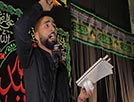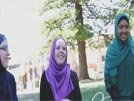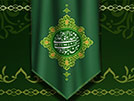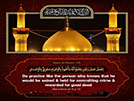6. The Personality of ‘Alī
- Details
- Hits: 3093
6. The Personality of ‘AlÄ«
According to the testimony of friend and foe alike, ‘AlÄ« had no shortcomings from the point of view of human perfection. And in the Islamic virtues he was a perfect example of the upbringing and training given by the Prophet. The discussion that has taken place concerning his personality and the books written on this subject by Shi‘ites, Sunnis and members of other religious bodies, are hardly equaled in the case of any other personality in history.
In science and knowledge, ‘AlÄ« was the most learned of the companions of the Prophet, and of Muslims in general. In his learned discourses he was the first in Islam to open the door for logical demonstration and proof and to discuss the "divine sciences" or metaphysics (ma’Ärif-i ilahiyah). He spoke concerning the esoteric aspect of the Qur’Än and devised Arabic grammar in order to preserve the Qur’Än’s form of expression. He was the most eloquent Arab in speech. The Prophet Muhammad (s.a.w.) said, “I am the city of knowledge and ‘AlÄ« is its gate.”
‘AlÄ« was also without equal in religious asceticism and the worship of God. In answer to some who had complained of ‘AlÄ«’s anger toward them, the Prophet said, “Do not reproach ‘AlÄ« for he is in a state of Divine ecstasy and bewilderment.” Abu Darda’, a companion of the Prophet, one day saw the body of ‘AlÄ« in one of the palm plantations of Medina lying on the ground as stiff as wood. He went to ‘AlÄ«’s house to inform his noble wife, the daughter of the Prophet, and to express his condolences. The daughter of the Prophet said, “My cousin (‘AlÄ«) has not died. Rather, in fear of God he has fainted. This condition overcomes him often.”
There are many stories told of ‘AlÄ«’s kindness to the lowly, compassion for the needy and the poor, and generosity and munificence towards those in misery and poverty. ‘AlÄ« spent all that he earned to help the poor and the needy, and himself lived in the strictest and simple manner. ‘AlÄ« loved agriculture and spent much of his time digging wells, planting trees and cultivating fields. But all the fields that he cultivated or wells that he built he gave in endowment (waqf) to the poor. His endowments, known as the “alms of ‘AlÄ«,” had the noteworthy income of twenty-four thousand gold dinars towards the end of his life.
Mas’udi, the famous historian of third Islamic century, writes:
“If the glorious name of being the first Muslim, a comrade of the Prophet in exile, his faithful companion in the struggle for faith, his intimate associate in life, and his kinsman;
“if a true knowledge of the spirit of his teachings and of the Book;
“if self-abnegation and practice of justice;
“if honesty, purity, and love of truth; if a knowledge of law and science,
“constitute a claim to pre-eminence, then all must regard ‘AlÄ« as the foremost Muslim. We shall search in vain to find, either among his predecessors (save one) or among his successors, those attributes.”











